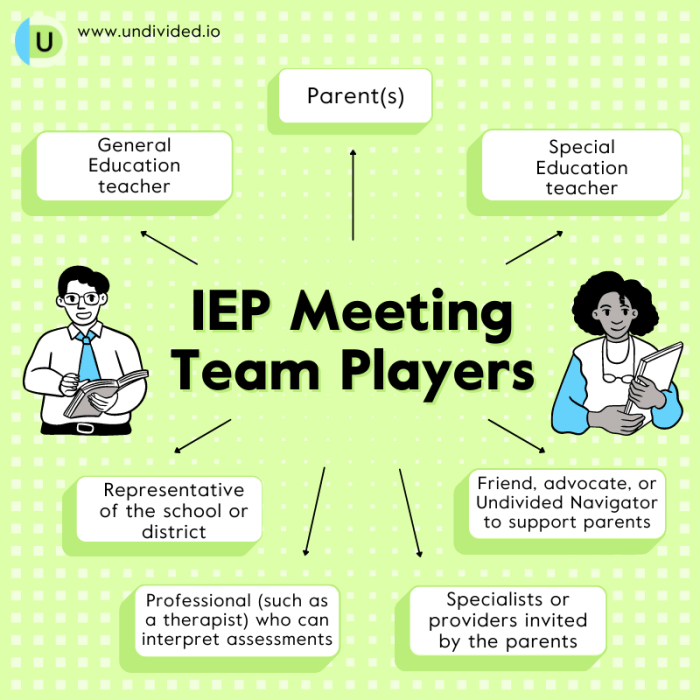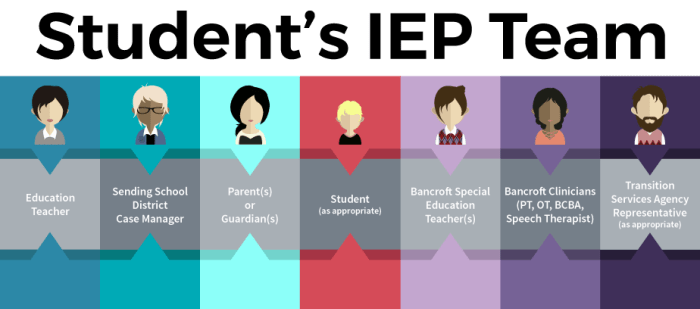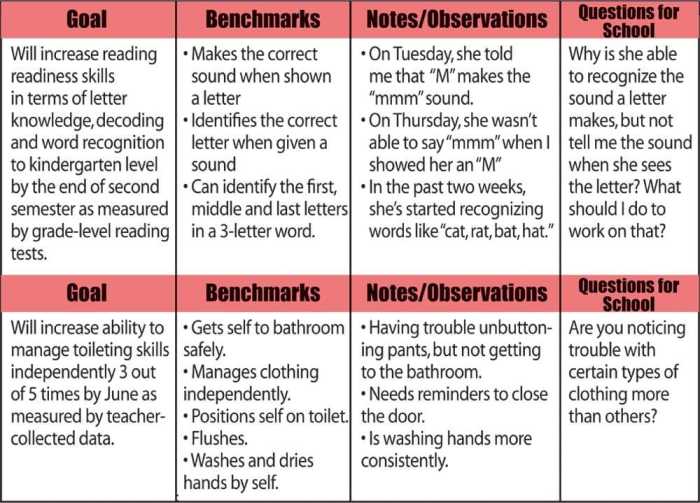Jj’s mother objects to a goal his iep team recommended – In the realm of special education, the Individualized Education Program (IEP) serves as a roadmap for students with disabilities. However, the process of developing and implementing an IEP can sometimes encounter obstacles, particularly when parents raise objections to the team’s recommendations.
This article delves into the complexities surrounding JJ’s mother’s objections to a goal proposed by his IEP team, exploring the legal, ethical, and practical implications of such a situation.
As we embark on this discussion, we will examine the perspectives of both JJ’s mother and the IEP team, shedding light on their concerns and motivations. We will delve into the legal and ethical obligations that guide the IEP process, emphasizing the rights of parents to participate and object.
Furthermore, we will highlight the importance of collaboration and communication, exploring strategies for building trust and establishing a positive working relationship between all parties involved.
JJ’s Mother Objects to a Goal His IEP Team Recommended

In the Individualized Education Program (IEP) process, parents and guardians play a vital role in shaping the educational plan for their child with disabilities. However, sometimes disagreements arise between parents and the IEP team regarding the goals and services recommended for the child.
This article explores the case of JJ, whose mother has objected to a goal recommended by his IEP team. We will examine the perspectives of both JJ’s mother and the IEP team, discuss the legal and ethical considerations, and explore strategies for collaboration and alternative approaches.
JJ’s Mother’s Perspective
JJ’s mother has expressed several objections to the IEP team’s recommended goal. She believes that the goal is not ambitious enough and does not reflect JJ’s true potential. She also has concerns about the methods proposed to achieve the goal, which she believes are not appropriate for JJ’s learning style.
Additionally, JJ’s mother feels that the IEP team did not adequately consider her input and perspectives. She believes that her knowledge of JJ’s strengths and challenges should be given more weight in the decision-making process.
IEP Team’s Perspective, Jj’s mother objects to a goal his iep team recommended
The IEP team has recommended a goal that they believe is appropriate for JJ’s current abilities and needs. They have gathered data and evidence to support their recommendation, including assessments, observations, and input from other professionals.
The team understands JJ’s mother’s concerns and respects her right to object to their recommendation. However, they believe that the goal they have proposed is in JJ’s best interests and will help him make progress towards his educational goals.
Legal and Ethical Considerations
Parents have the legal right to participate in the IEP process and to object to recommendations. However, the IEP team ultimately has the authority to make decisions about the child’s educational program.
In cases where there is a disagreement between parents and the IEP team, it is important to consider the ethical implications of overriding a parent’s objections. The team must carefully weigh the potential benefits and risks of overriding the parent’s wishes, and they must make a decision that is in the best interests of the child.
FAQ Overview
What are the legal obligations of the IEP team in this situation?
The IEP team has a legal obligation to consider the concerns of parents and to make every effort to resolve any objections. They must also provide parents with a written explanation of their decisions and the reasons for any disagreements.
What are the rights of parents to participate in the IEP process?
Parents have the right to participate in the development and implementation of their child’s IEP. They can attend IEP meetings, review and provide input on proposed goals and services, and object to any recommendations they disagree with.
What are some alternative approaches to the recommended goal that may address JJ’s mother’s concerns?
Alternative approaches may include setting a different goal, modifying the proposed goal, or exploring other educational interventions that align with JJ’s mother’s priorities and concerns.

